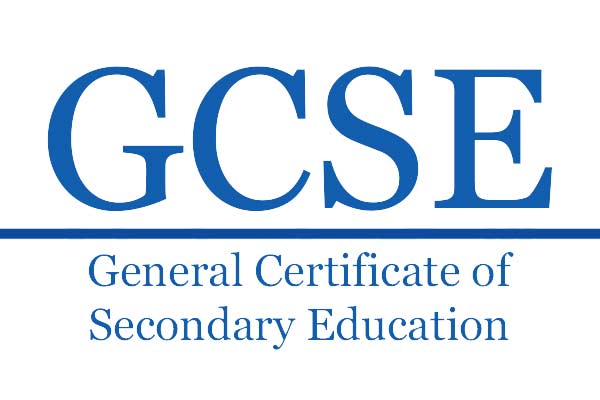Is French GCSE Hard? Expert Analysis and Insights
Mastering a new language can present difficulties, and French is no different. Many students wonder, “Is French GCSE hard?”
The answer to this question depends on several factors, including the student’s learning style, motivation, and the resources available to them. French is considered a challenging language to learn for several reasons.
Its grammar rules can be complex, and the pronunciation can be difficult for English speakers.
Additionally, French has many irregular verbs, making it challenging to memorize all the different forms.
However, with regular practice and dedication, students can overcome these obstacles and succeed in their French GCSE exams.
Developing a strong language base, which encompasses vocabulary, grammar, and listening abilities, is crucial.
Understanding GCSE French
GCSE French is a qualification that assesses a student’s language skills in the French language. It is a modern foreign language that many students in the UK study.
The qualification aims to develop the student’s ability to communicate effectively in French, both in written and spoken forms.
The GCSE French exam comprises four disciplines: listening, reading, writing, and speaking. Each discipline carries an equal weight of 25% of the overall grade.
The exam is available in two tiers: Foundation Tier (grades 1-5) and Higher Tier (grades 4-9).
The Foundation Tier is designed for students who are expected to achieve grades 1-5, while the Higher Tier is for those who are expected to reach grades 4-9.
🌟 Hey Students! 🚀 Ready for the ultimate experience? Join us on Studentsinside.com's Facebook, YouTube, WhatsApp, and LinkedIn. Click now for tips, fun, and success vibes! 🌈✨ #StudentLife #JoinUs
The Foundation Tier covers basic vocabulary and grammar, while the Higher Tier covers more complex vocabulary and grammar.
To pass the GCSE French exam, students must show proficiency in each area. Enhancing one’s language abilities can be achieved through reading French literature, enjoying French movies, and tuning in to French music.
GCSE French vs Other Languages
Regarding GCSE modern foreign languages (MFL), French is one of the most popular options for students in the UK.
However, many students wonder if French is harder than other MFL options, such as Spanish or German.
According to a report by Ofqual, French, and German are consistently harder than other GCSE subjects, while the difficulty of Spanish appears to fluctuate more by year.
Spanish is found to be more closely aligned with other EBacc subjects, such as history and geography, and at some grades, it was easier than these.
While French and German have seen a decline in popularity in recent years, the popularity of Spanish continues to grow, with A-level entries up 8% between 2010 and 2018. This may be because Spanish is considered one of the easier MFL options.
It’s worth noting that Latin is also available as a GCSE option, but it’s not considered a modern foreign language. Latin is often seen as a challenging subject due to its complex grammar and vocabulary, but it can also be a rewarding option for students interested in classics or linguistics.
Key Areas of Study in GCSE French
GCSE French covers various critical areas of study, including listening, speaking, reading, and writing. Students must have a good understanding of vocabulary, grammar, pronunciation, spelling, and tenses to perform well in the exam.
The GCSE French exam comprises four question papers, each centered on a distinct theme: identity and culture, local and global interests, education and employment prospects, and environmental issues.
Students must take all four question papers at the same tier, either the foundation tier (grades 1-5) or the higher tier (grades 4-9).
The exam assesses the student’s ability to understand and communicate in French, as well as their knowledge of French culture and society. It also tests their ability to translate from French to English and vice versa.
To prepare for the exam, students must focus on building their vocabulary and grammar skills. They must also practice their listening and speaking skills to improve their pronunciation and accent. Students must learn to use the subjunctive tense and other complex grammatical structures.
The exam also requires students to have a good understanding of French culture, including its history, literature, and art.
They must be able to read and understand French texts and write in French using correct grammar, spelling, and punctuation.
Exam Structure and Grading
The French GCSE exam structure and grading system are set by the exam boards and regulated by Ofqual.
The exam consists of four components: listening, speaking, reading, and writing. The exam is divided into two tiers: Foundation Tier and Higher Tier.
The Foundation Tier is designed for students who are expected to achieve grades 1 to 5, while the Higher Tier is for students who are expected to reach grades 4 to 9. The Foundation Tier question papers are easier than the Higher Tier question papers.
Grade 5 is the highest possible score on the Foundation Tier, and Grade 9 is the highest achievable grade on the Higher Tier.
Each component is worth 25% of the total marks, and each component is graded separately. The exam is marked using a 9-1 grading system, with 9 being the highest grade and 1 being the lowest grade. The grading system is designed to differentiate between students of different abilities.
The exam boards set the question papers and mark schemes, and they are responsible for marking the exams. The marking is done by trained examiners who follow the mark schemes and marking guidelines provided by the exam boards.
The exam boards use standardization to ensure that the marking is consistent across all examiners.
Recently, there have been concerns about severe grading standards in French GCSE exams. In 2019, Ofqual adjusted grading standards in GCSE French and German.
The decision was made after the exams regulator found that the subjects were too hard. As a result, the grade boundaries were lowered to ensure that students were not unfairly penalized.
Themes and Topics in GCSE French
The GCSE French course is structured around three main themes, and each of these themes covers specific subjects. These themes are:
- Identity and Culture
- Local, National, International, and Global Areas of Interest
- Current and Future Study and Employment
In the Identity and Culture theme, students learn about family, friends, hobbies, and traditions. This theme also covers food, sport, and music. Students are expected to be able to talk about their own identity and culture, as well as compare and contrast it with that of others.
The Local, National, International, and Global Areas of Interest theme covers travel, holidays, and the environment. This theme also includes discussions on homelessness, unemployment, and opinions on social issues.
Students are expected to be able to talk about their local area, as well as broader issues affecting society.
The Current and Future Study and Employment theme covers education, career aspirations, and work experience. This theme also includes discussions on global issues such as poverty and sustainability.
Students are expected to be able to talk about their own education and career goals, as well as understand the challenges and opportunities facing the world of work.
The Difficulty of GCSE French
French is considered one of the most challenging GCSE subjects. It requires a high level of proficiency in grammar, vocabulary, and pronunciation.
The difficulty of French GCSE is often attributed to its unique rhythm and speed, which can be challenging for non-native speakers to master.
One of the main difficulties of French GCSE is adjusting to the language’s complex grammar rules. French has a complex verb conjugation system, which can be challenging to learn and master.
Additionally, French has a complex gender system, which requires learners to memorize the gender of each noun. This can be challenging for learners who are not used to gendered languages.
Another difficulty of French GCSE is the language’s unique rhythm and speed. French is known for its rapid-fire delivery and complex intonation patterns. This can be difficult for learners to master, mainly if they are not used to the language’s unique rhythm.
Despite these challenges, many resources are available to help learners succeed in French GCSE.
These include textbooks, online courses, and language exchange programs. Additionally, many schools offer extra support for students struggling with the language.
Future Prospects with GCSE French
GCSE French can open up various student opportunities regarding future studies and employment prospects. Here are a few potential benefits of studying GCSE French:
Current and Future Study
Studying GCSE French can provide a solid foundation for further studies in French language and culture. Students who study A-level French or a degree in French can benefit from the knowledge and skills acquired during their GCSE studies.
These higher-level courses can lead to various career paths, such as translation, interpretation, teaching, or working for international organizations.
Employment
Knowledge of French can be an asset in the job market, especially for those interested in international business or working for companies with French-speaking clients or partners.
French ranks as the second most commonly studied foreign language, right after English. Mastering French and English can enhance your employability, making it a valuable asset for potential employers.
A-Levels
Studying GCSE French can prepare students for A-level French and help them achieve higher grades. A-level French can lead to further studies in French at the university level and open up various career opportunities.
Spoken Language
GCSE French focuses on developing students’ speaking, listening, reading, and writing skills.
Being able to speak French can be an advantage when traveling to French-speaking countries or when communicating with French speakers in professional or personal settings.
Speech
GCSE French also provides students with an opportunity to develop their speech and presentation skills. Students must present in French to grow their confidence and improve their public speaking skills.
Resources and Tips for GCSE French
Preparing for the GCSE French exam can be a daunting task for many students. However, with the right resources and tips, students can feel more confident and well-prepared for the exam.
Here are some helpful resources and tips for GCSE French:
Revision Resources
Revision is an essential part of preparing for any exam, including GCSE French. There are several revision resources available for students, including textbooks, revision guides, and online resources. Students can use these resources to review grammar, vocabulary, and other critical concepts covered in the exam.
Listening Exam
The listening exam is a significant part of the GCSE French exam. To prepare for this exam, students can practice listening to French podcasts, watching TV shows or movies, and listening to French music.
This can assist them in enhancing their ability to listen and feel more at ease with the French language.
Speaking Exam
The speaking exam can be challenging for many students, but with practice, it can become more manageable. To prepare for the speaking exam, students can practice conversing in French with their classmates or friends.
They can also practice role-plays and photo cards to become more comfortable with the exam format.
Tips
Here are some tips for GCSE French students:
- Practice regularly: Regularly practicing is crucial for enhancing your language abilities.
- Learn vocabulary: Learning new vocabulary is crucial for understanding and communicating in French.
- Use French in everyday life: Try to use French in everyday life, such as ordering food or asking for directions.
- Read French articles: Reading French articles can help improve reading comprehension and vocabulary.
- Focus on grammar: Understanding grammar is essential for communicating effectively in French.
Resources
Here are some helpful resources for GCSE French students:
- BBC Bitesize: Provides various resources and activities to help students prepare for the exam.
- Duolingo: An online language learning platform that offers French courses.
- Memrise: A language learning app that offers French courses.
- Quizlet: An online learning platform that provides flashcards and other study tools for French.







